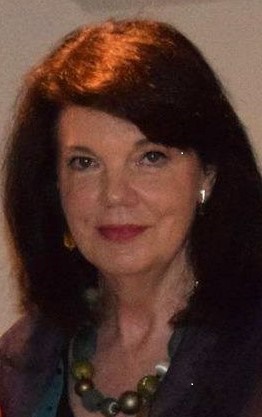 Throughout May, the OAC is urging our supporters to visit our Action Center and take action on our latest issue: sending an automated letter to the top U.S. news organizations that educates the media on how to accurately discuss obesity.
Throughout May, the OAC is urging our supporters to visit our Action Center and take action on our latest issue: sending an automated letter to the top U.S. news organizations that educates the media on how to accurately discuss obesity.
Why is this initiative so important? We asked OAC Community Member Pamela Jones, a civil rights lawyer and advocate for victims of unlawful discrimination, why she’s passionate about educating the media on issues like weight bias. Pamela signed OAC’s recent letter to NBC officials after a stigmatizing episode of ‘The Tonight Show’ that urged further education on obesity, so we were curious as to what compelled her to take action.
Here’s what Pamela told us:
I Watched a Recent Example of Weight Bias Presented in the Media…
In his recent “Angry Man” rant on ‘The Tonight Show Starring Jimmy Fallon’ on NBC, comedian Jay Leno mocked the scientific study that identified a virus as a contributing cause of obesity. Through the vehicle of disparagement humor, Leno exhorted the audience to reject as an “excuse” any causes of obesity other than gluttony and sloth. “We are becoming a nation of excuse makers,” Leno explained.
He then mimicked a phone call between an employee and his supervisor in which he portrayed a man with obesity “calling in fat to work…with a touch of that obesity thing that’s been going around” so he could “sit on the couch and eat M&M’s until the swelling goes down.”
Joining the Cause against Weight Bias:
I was pleased to hear that the OAC swiftly wrote to NBC officials and condemned the weight bias manifested in Jay Leno’s rant. The OAC set the record straight about the disease of obesity and the consequences of weight bias in the media for those affected by it. The OAC then issued a call to its membership, of which I am a part, to sign its letter to NBC. I signed the OAC’s ‘The Tonight Show’ petition to help raise awareness of the facts about obesity and the harm inflicted by disparagement humor.
What My Career Background Has Taught Me about Weight Bias:
I am a civil rights lawyer. I support the OAC’s mission to eliminate weight bias and discrimination because I have witnessed the effects of employment discrimination against those affected by the disease of obesity, particularly women. Leno’s sketch perpetuates the false stereotype that obesity is self-inflicted and those who suffer from it are lazy, unreliable workers who lack self-control.
It is important to identify and challenge weight bias in the media, especially when, as here, it is cloaked as “humor” and might otherwise be perceived as harmless. Mocking those affected by obesity is not harmless.
Disparagement humor and misinformation about the causes of obesity contribute to workplace discrimination. Weight bias of any kind has significant adverse workplace consequences. Studies show that an employer is more likely to hire an applicant without obesity than an applicant of equal or even superior qualifications who has obesity. Those with obesity frequently earn less than their co-workers and are more likely to experience workplace hostility and job insecurity. Repeated job rejections, lower wages and weight-based hostile working environments take a severe psychological tool on employees affected by obesity.
The Bottom Line:
The work of the OAC, including its letter to NBC, helps educate the media on the facts about obesity. The media is then better able to provide accurate content, which in turn helps bring positive change to the public’s perception of obesity and those affected by it. Changing public perception is an essential step toward eliminating discrimination. I support the OAC’s mission to eliminate weight bias and discrimination and for that reason, I am proud to have signed their recent ‘The Tonight Show’ Petition.
ACT NOW! How YOU Can Help the OAC Fight Weight Bias in the Media
Are you interested in educating the media about obesity and the people it impacts? Visit the OAC Action Center and use our automated message generator to send a letter to media representatives in the top 25 U.S. news organizations with the greatest following.The letter, which we’ve pre-written for you, will educate media representatives about strategies such as People-First Language, avoiding headless imagery and using science-based information. CLICK HERE to send your letters!
